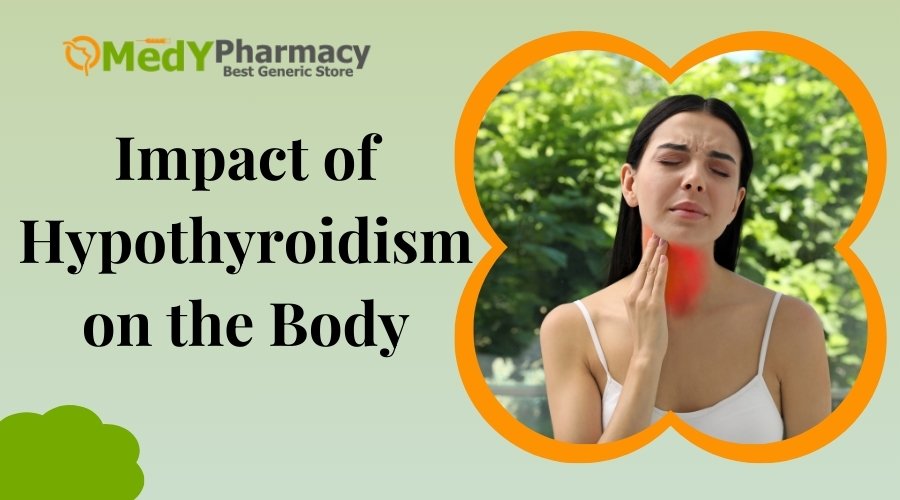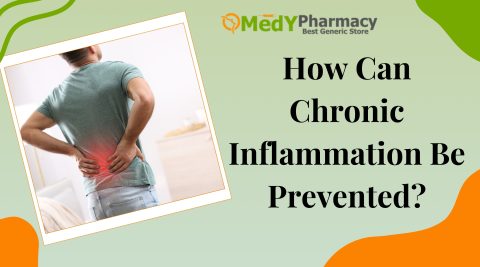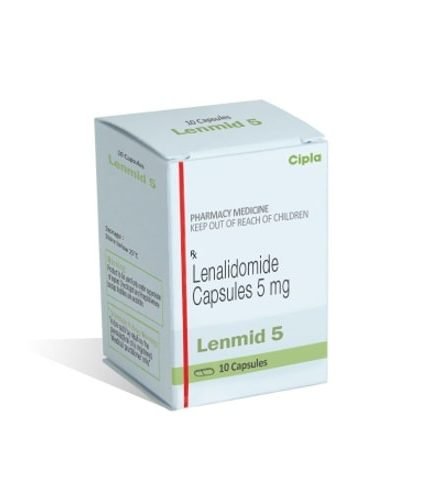Introduction:
Do you occasionally experience symptoms such as anxiety, weight gain, or fatigue? This is one of the conditions that each of these problems may be a sign of. These symptoms could be caused by low thyroid hormone levels, which could be the result of a malfunctioning thyroid gland.
We’ll give you specifics regarding this problem and its potential physiological effects in this post. We’ll look for symptoms and other indicators that this problem is affecting your body. After that, we’ll also investigate whether this problem has any risk factors.
In its early stages, hypothyroidism might not exhibit any symptoms at all. If left untreated, this can eventually result in serious health issues like heart disease and elevated cholesterol.
Patients with these are diagnosed by blood testing. Thyroid hormone medication treatment is typically easy, safe, and successful once you and your healthcare professional determine the ideal dosage.
The hormones that the thyroid gland generates aid in the body’s efficient usage of energy. These hormones are not produced in sufficient amounts by the thyroid gland in hypothyroidism. Heart function, mental health, body weight, and other factors may be impacted.
Muscle soreness, cold sensitivity, dry skin, and fatigue can all happen. These signs might point to how affect specific body processes.
What Is Hypothyroidism?
When your thyroid gland doesn’t produce or release enough hormones into your bloodstream, you get this ailment. Your metabolism slows down as a result. You may gain weight inadvertently and have constant fatigue as a result.
Even though exhaustion and weight gain are not unique to hypothyroidism, your doctor can screen for the illness with a quick blood test.
Generally speaking, this is quite curable. The majority of people may control the problem with medication and frequent endocrinologist follow-ups.
Long-term neglect of this can have fatal consequences. Getting evaluated is crucial if you experience any new symptoms.
When the thyroid gland produces insufficient thyroid hormones to suit your body’s needs, it’s referred to as an underactive thyroid. In the front of your neck is a little gland that resembles a butterfly: the thyroid.
Almost every organ in your body, including the heartbeat, is impacted by thyroid hormones, which regulate how your body uses energy. When your thyroid hormone levels are low, a lot of bodily systems slow down.
Your neck’s front, lower region contains the thyroid gland. The hormones the gland releases enter your bloodstream and impact almost every bodily part, including your muscles, skin, heart, and brain.
Your body’s temperature, heart rate, and calorie-burning efficiency are all influenced by your metabolism. Thyroid hormone deficiency causes your body to function more slowly. Your metabolism slows down and your body produces less energy as a result.
To Determine Whether You Are Hypothyroidism
- System of Endocrine Function
Your body produces insufficient amounts of thyroid hormones T3 and T4 when you have hypothyroidism. The hormones in question regulate your metabolism. They have an impact on how your body uses energy. Your body’s primary processes may alter and slow down as a result.
- Weight
- Body Temperature
- Energy
- Skin, Hair, and Nail Health
The endocrine system includes the thyroid gland. It supports the maintenance of a healthy metabolism when it is operating properly.
An improperly functioning thyroid can cause problems for the entire endocrine system.
- Cardiovascular and Circulatory Systems
Your heart becomes less effective at pumping blood to your body when you have hypothyroidism because your heart beats weaker and your heart rate decreases. This may cause you to have dyspnea during physical activity. This illness can also cause your arteries to constrict, which can increase blood pressure. This may result in elevated cholesterol.
- Atrial And Ventricular Arrhythmias
- Heart Failure
- Dyslipidemia
- Atherosclerotic Vascular Disease
A recent study looked at the heart health of hypothyroid individuals. Individuals with untreated hypothyroidism were 83% more likely to get heart issues than those with treatment.
Those with this should speak with a medical expert to find out more. Treating this disorder as soon as possible might lower the chance of developing heart issues.
- Nervous system
The way information is sent to and received from your brain, spinal cord, and body can be altered by untreated hypothyroidism. A disorder known as peripheral neuropathy may result from this. The afflicted areas of your body may experience burning, tingling, discomfort, or numbness.
- Cognitive Difficulties
- Depression
- Epilepsy
- Parkinson’s disease
In some instances, this may result in neurological problems. This person had weakness and paralysis on the left side of his face when he first arrived. He also had trouble speaking.
These symptoms were caused by nerve injury, which was determined by medical testing to be the outcome of hypothyroidism.
- Respiratory System
Insufficient thyroid hormone impairs lung function and weakens the muscles involved in breathing. Consequently, you can experience dyspnea or difficulty during physical activity.
Sleep apnea, or breathing pauses that occur during sleep, is another condition that is more likely to develop in people with hypothyroidism.
- Wheezing
- Coughing
- Excessive Sputum Production
This has also been linked to sleep apnea by blocking airways as you sleep, according to research. Thyroid hormone deficiency may cause respiratory muscles to deteriorate. Additionally, they can change lung capacity.
- System of Digestion
Food passes more slowly through the intestines and stomach when you have hypothyroidism. Symptoms of slowed digestion include bloating, constipation, and heartburn.
This may have an impact on the digestive system. The way the body uses energy, or metabolism, may be negatively impacted. Thyroid dysfunction can lower metabolism by producing insufficient amounts of hormones. Gaining weight may result from this.
People with this condition could also be mineral-sensitive. In certain situations, for instance, meals high in iodine might exacerbate the symptoms of hypothyroidism.
- System of Reproduction
Women who have this may experience heavy, irregular, or absent periods. If they do become pregnant, they may experience difficulties getting pregnant or have a higher chance of miscarrying.
- Different systems
A low thyroid hormone level slows down your body’s metabolism, which might result in general symptoms like:
- Weariness
- Gaining Weight
- Intolerance For Cold
- Edema In The Hands And Feet
Pale and dry skin can be caused by a thyroid hormone deficiency. Your ability to regulate your body temperature may also be impacted, resulting in less perspiration than normal. You may experience thinning of your hair, notably the hair on your scalp and the outer corners of your eyebrows. Your nails can start to break easily and change in appearance.
Everything from your skin to your brain may be impacted by this. However, each person’s condition is unique. While some people experience mild symptoms, others have more severe ones. It’s crucial to take the drugs your doctor recommends to control this illness and its symptoms and keep up a healthy lifestyle.
Different Forms of Hypothyroidism
- Primary hypothyroidism
Directly affects your thyroid, causing it to produce insufficient amounts of thyroid hormones. Consequently, your pituitary gland produces extra TSH due to this. It may be brought on by autoimmune diseases like Hashimoto’s disease, or it may develop following radiation therapy or thyroid gland surgery. The form that occurs most frequently is primary hypothyroidism.
- Secondary hypothyroidism
Is caused by an underactive pituitary gland. This uncommon form of hypothyroidism stops your pituitary from releasing thyroid-stimulating hormone (TSH).
- Tertiary hypothyroidism
Occurs when the hypothalamus produces insufficient amounts of thyrotropin-releasing hormone (TRH). Your pituitary gland is therefore unable to produce enough TSH.
- Subclinical Hypothyroidism
When all other thyroid hormone levels are within a normal range but your TSH levels are slightly raised, it’s referred to as moderate thyroid failure. In roughly three months, subclinical hypothyroidism typically resolves on its own.
An Overview of the Problem of Hypothyroidism
Here, “hypo” denotes less, while “thyroids” refers to thyroid hormone. Thus, you will receive less thyroid hormone if you combine the two. And here is the problem: your body is just lacking thyroid hormone.
However, it’s not just any problem. Research indicates that if left untreated, it can eventually lead to several health issues. The article’s second part will provide us with further information about them.
For example, this might cause your body’s metabolic rate to drop. Experiencing constant fatigue and exhaustion is possible. Gaining weight is another prevalent problem that reflects this symptom.
Anyone can have hypothyroidism. Most persons over 60 who were assigned female at birth have it, especially after menopause.
Why Is Hypothyroidism Caused?
When your immune system perceives your normal tissues as abnormal, it begins attacking them. Anti-thyroid antibodies are produced by it. Thyroid gland overactivity therapy could be another factor. Surgery or radioactive iodine treatment may be part of that. It is also possible for hypothyroidism to appear soon after pregnancy.
Additionally, a condition known as this may occasionally occur. This is the result of insufficient thyroid-stimulating hormone production by your pituitary gland. The thyroid gland is then no longer instructed by the pituitary gland to produce enough thyroid hormones.
Newborns are examined for hypothyroidism at delivery. We refer to this disorder as congenital hypothyroidism. It needs immediate medical attention. A baby’s brain and nervous system may be impacted.
The Frequency of Hypothyroidism In
According to reports, this is between 4 and 5% worldwide, while subclinical hypothyroidism is between 4 and 15%.
One risk factor for hypothyroidism is pregnancy, which accounts for 1.5% to 4% of the incidence rate. Of these, subclinical hypothyroidism was present in the remaining 0.3% to 0.5% with overt hypothyroidism.
12 Symptoms of Hypothyroidism
- Tiredness
A prevalent symptom of hypothyroidism is fatigue. Numerous patients say they are so worn out with the illness that they are unable to carry on with their regular activities.
No matter how much sleep or how many naps a person takes during the day, fatigue still happens. When this is treated, people typically have more energy and can perform better.
- Weight gain
The metabolism of fat and sugar, food consumption, and body weight are all influenced by thyroid hormones. Individuals who have low thyroid hormone levels may acquire weight and see a rise in their body mass index (BMI).
The risk of gaining weight and becoming obese can be elevated by even mild cases of hypothyroidism. Individuals who have the illness frequently describe having extra weight around their stomach or other parts of their body, along with a puffy face.
- Sore muscles and joints
- Aches
- Pains
- Stiffness
- Swelling of the Joints
- Tenderness
- Weakness
Additionally, there is evidence linking thyroid issues to rheumatoid arthritis, an autoimmune disease that results in excruciating swelling of the joint lining. Those who receive effective treatment for both illnesses will be able to control their symptoms.
- Mood and memory changes
- Anxiety
- Depression
- Apathy
- Impaired Memory Function
- Less Attentiveness and Concentration
- Low Moods
- Slower Thinking and Speech
Because these are necessary for the brain to operate properly, these symptoms may manifest. Low thyroid hormone levels have been linked in studies to alterations in the structure and function of the brain.
After starting treatment, these brain alterations can be reversed.
- Feeling cold
The core body temperature may decrease as a result of this slowed metabolism. Therefore, some people who have low thyroid hormone levels may have a limited tolerance to cold or feel cold all the time.
Even during the summer or in a heated atmosphere, this feeling of coldness may endure. While they may feel cold all over, people with hypothyroidism frequently complain of feeling cold hands or feet.
However, these symptoms are not exclusive to hypothyroidism. People may also feel cold due to circulation issues or anemia.
- Constipation
Another bodily function that may slow down as a result of hypothyroidness is digestion.
According to studies, an underactive thyroid can lead to issues with the stomach, small intestine, and colon’s activity as well as with movement through the gut.
Constipation might be a result of these changes in the digestive system.
Hard stools, trouble passing stool, or a feeling that the rectum cannot be completely emptied are some possible symptoms.
- High cholesterol
For the liver to eliminate extra cholesterol from the body, thyroid hormones are essential. Blood cholesterol levels may rise when hormone levels are low because the liver finds it difficult to perform this activity.
An underactive thyroid is found in up to 13 percent of people with elevated cholesterol, according to research. People with high cholesterol should therefore be regularly tested for hypothyroidism, according to numerous experts.
Even if a person does not use medication to control cholesterol, treating the thyroid issue may help lower cholesterol levels.
- Slow heart rate
Another symptom of hypothyroidism is bradycardia or a slowed heartbeat. The heart may also be impacted by low thyroid levels in other ways.
- Variations in blood pressure
- Changes in the beat of the heart
- Less elastic arteries
Symptoms of bradycardia include weakness, lightheadedness, and dyspnea. Cardiac failure or severe problems like high or low blood pressure could arise from this cardiac issue if therapy is not received.
- Hair loss
Thyroid issues and other untreated hormone imbalances can cause hair loss. This is so because the development and well-being of hair follicles depend on thyroid hormones. This could result in hair loss due to the
- Scalp
- Eyebrows
- Legs
- Other Body Parts
The autoimmune disorder known as alopecia, which results in patchy hair loss, is also more common in those with thyroid issues.
- Dry skin
- Dry, Coarse Skin
- Paleness
- Thin, Scaly Skin
Additionally, this can cause dry, coarse, and brittle hair as well as thin, lifeless nails that are prone to breaking.
Once people start thyroid hormone therapy, these symptoms normally go away.
- Goiter
A thyroid gland enlargement known as a goiter manifests as a bulge near the nape of the neck.
- A Cough
- Hoarseness
- Problems Swallowing And Breathing
Hashimoto’s thyroiditis, an autoimmune disease that damages the thyroid gland and prevents it from generating enough hormones, is one of the many thyroid issues that can cause a goiter.
Underactive thyroid and, less frequently in the US, iodine insufficiency are further factors.
- Menstrual changes
Spotting in between periods or heavy or irregular menstrual cycles are symptoms of an underactive thyroid.
Because it influences other hormones involved in menstruation, these lead to these issues.
- Hindering Estrogen’s Breakdown
- Lowering Sex Hormone-Binding Globulin Levels
Late symptoms
The symptoms of this may not be seen for a long time since it develops gradually. Untreated this can lead to:
- Diminished odor and flavor
- Hoarseness
- Feet, hands, and facial puffiness
- Speaking slowly
- Thickening of the skin
- Eyebrow thinning
- Low body temperature.
- Low heart rate
How Can Hypothyroidism Be Addressed?
The most popular treatment for this is hormone replacement therapy. Levothyroxine is a drug that substitutes the hormones your thyroid is unable to produce on its own. On an empty stomach, most individuals take it in the morning. Levothyroxine, when taken daily, can balance your hormone levels and get rid of your symptoms.
The ideal dosage will require some trial and error. Your doctor will do regular thyroid blood tests until your TSH levels stabilize to accomplish this.
You will require medicine for hypothyroidism for the remainder of your life. A normal and healthy life can be yours with careful management and frequent check-ups with your doctor.
How Quickly Will I Recover After Treatment?
Your hormones are immediately leveled out by medications such as levothyroxine. However, it typically takes a few weeks to see a change in your symptoms.
Keep in mind that you will most likely require lifelong treatment for hypothyroidism. Your symptoms will likely return if you stop taking it.
Is It Problematic To Have Hypothyroidism During Pregnancy?
Both mother and unborn child may suffer from hypothyroidism throughout pregnancy if treatment is not received. Nonetheless, thyroid medications are safe to take while pregnant and can assist avoid issues. Get in touch with your doctor as soon as you learn you are pregnant because many women who take thyroid hormone medication require a larger dosage during pregnancy.
What are hypothyroidism’s side effects?
A contributing factor to elevated cholesterol is hypothyroidism. You should undergo a hypothyroidism test if your cholesterol is high. Myxedema coma is an extreme form of hypothyroidism in which the body’s processes slow to the point that it is potentially fatal. It is rare for severe hypothyroidism to go untreated. Treatment for myxedema coma must be started right away.
Hypothyroidism Causes
The most frequent cause of hypothyroidism is thyroiditis caused by Hashimoto’s. Thyroiditis caused by Hashimoto’s is an autoimmune disease. Your body creates antibodies that target and kill the thyroid gland when you have Hashimoto’s disease. Another possible cause of thyroiditis is a viral infection.
- Radiation Treatment for the Cervical Region.
Neck radiation is necessary to treat several malignancies, including lymphoma. Radiation harms the thyroid’s cells. The gland’s ability to generate hormones is hampered by this.
- Use of Radioactive Iodine.
Those with hyperthyroidism, a condition in which the thyroid gland is hyperactive, are frequently offered this therapy. Usually, this results in hypothyroidism.
- Use of Specific Drugs.
Some medications used to treat cancer, mental health issues, and cardiac issues might occasionally interfere with thyroid hormone production. Amiodarone, interleukin-2, and interferon alpha are a few examples.
- Thyroid Surgery.
The result of thyroid removal surgery is hypothyroidism. The thyroid may still be able to create adequate hormones for the body’s needs if only a portion of it is eliminated.
- Dietary Iodine Levels Are Inadequate.
To make thyroid hormones, the thyroid requires iodine. Shellfish, saltwater fish, eggs, dairy products, and seaweed are additional nutritional sources of iodine. In America, iodine deficiency is uncommon.
- Being Pregnant.
Thyroid inflammation can sometimes happen after pregnancy, though the cause is unknown. We refer to this as postpartum thyroiditis. Typically, women with this illness experience a sudden decline in thyroid hormone production after experiencing a substantial surge in thyroid hormone levels.
- Birth Defects Related To The Thyroid.
Thyroid glands that did not form or function properly may be present in some newborns. We refer to this kind of hypothyroidism as congenital hypothyroidism. The majority of hospitals in the United States screen newborns for this illness.
- Pituitary Disorders or Injury.
In rare cases, thyroid hormone synthesis may be disrupted by a pituitary gland issue.
- An Issue with the Hypothalamus.
If the brain’s hypothalamus does not produce enough of the hormone TRH, it might result in a very uncommon type of hypothyroidism. TRH influences the pituitary gland’s production of TSH.
How Does Someone With Hypothyroidism Feel?
Each person’s experience with hypothyroidism is unique. Some individuals may struggle with feeling worn out or lethargic. Depression and other mental health conditions may affect others. In the arms or legs, nerve problems may result in discomfort or numbness.
For the majority of symptoms, treatment is helpful. Anyone with new or worsening symptoms or concerns can talk to a healthcare provider.
Is Hypothyroidism Possible During Pregnancy?
Individuals with an underactive thyroid are more likely to experience pregnancy issues such as postpartum hemorrhage and gestational hypertension, as well as infertility. However, regular medication and thyroid function testing can assist ensure a healthy pregnancy. You should consult your doctor about managing your hypothyroidism if you believe you may be pregnant.
What Am I Supposed To Know About Childhood Hypothyroidism?
Some people are born with either no thyroid or an underactive thyroid. When this occurs, medical professionals refer to it as congenital hypothyroidism.
Every newborn is examined by providers for hypothyroidism. For an infant’s growth and brain development, thyroid hormone is crucial. In the first few weeks of birth, your doctor will start treating your child if they have congenital hypothyroidism to prevent intellectual problems and developmental delays.
How Does Hypothyroidism Get Treated By Doctors?
You will take a thyroid hormone medication called levothyroxine, which is the same hormone that a healthy thyroid produces. In addition to being given as a tablet, this medication is also sold as a liquid and as a soft gel capsule. The thyroid hormone may be better absorbed by those who have digestive issues thanks to these more recent forms. Before eating in the morning, your doctor might advise taking the medication.
Blood tests will be performed approximately 6 to 8 weeks after you start taking the medication, and your doctor will alter your dosage if necessary. Every time your dosage is changed, you will have an additional blood test. After you’ve found a dosage that suits you, your doctor will likely take another blood test six months later and then annually after that.
Thyroid hormone medication can probably totally control this if you follow the prescribed dosage as directed.
Last Words:
This can cause a wide range of symptoms, some of which may eventually develop into more complicated problems. It’s a good idea to obtain your solution quickly and adhere to it.
On the other hand, don’t count on any favorable result in a few days or months. Frequently, you might need to take the medication for the remainder of your life. However, the good news is that, even after extended use, there are no significant adverse effects.
A filtered list of open and recruiting clinical studies on hypothyroidism is available for you to view at Medypharmacy.























